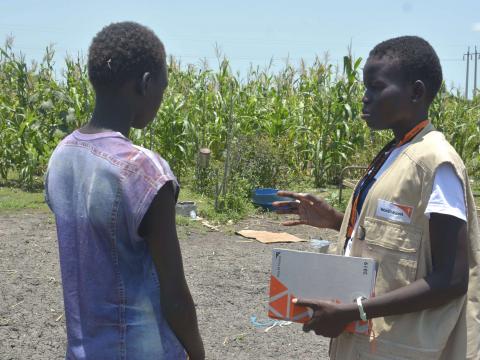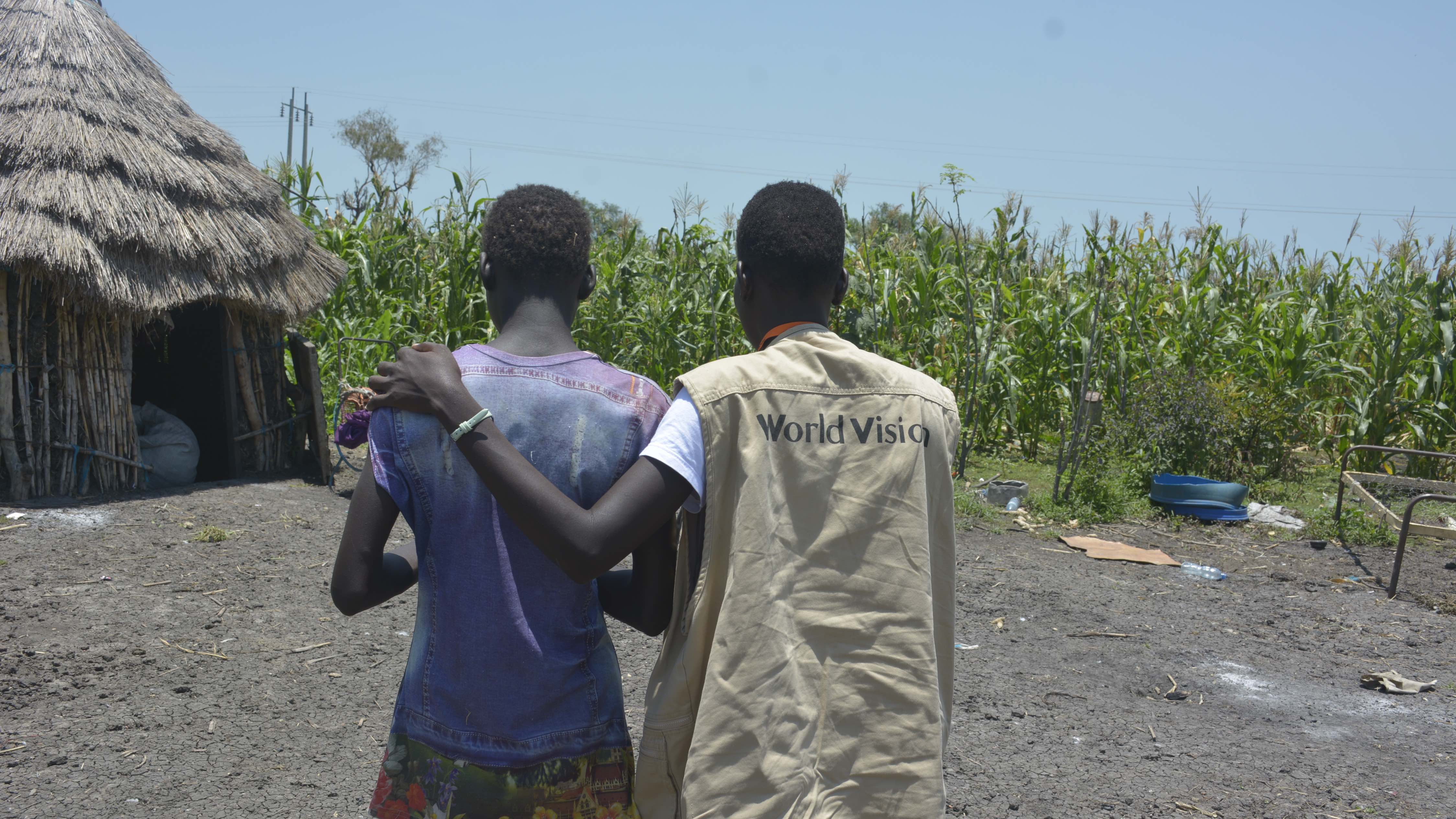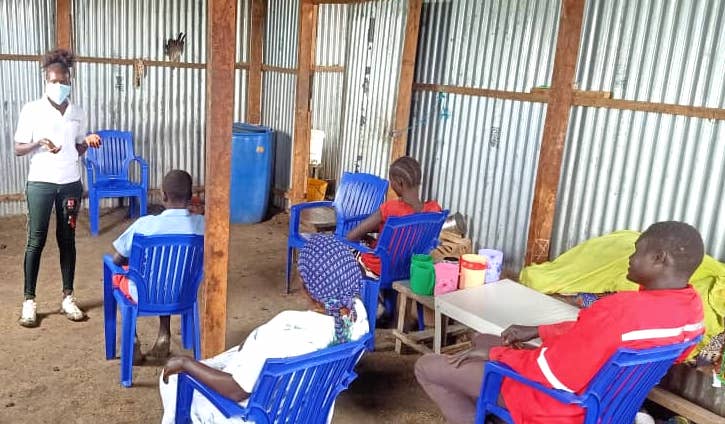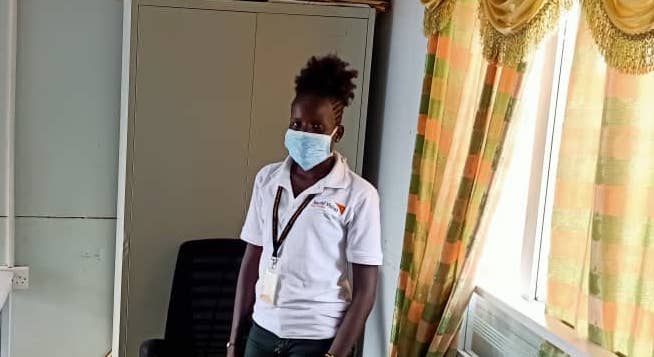Not even COVID-19 can stop this advocate against gender-based violence: My work cannot wait

It gives me joy to serve people in the communities, especially children and women. If I see them happy, I forget what I went through growing up in Kakuma Refugee Camp in Kenya.
It took my parents three months of walking to reach the border in 1992 and get registered as refugees by the UNHCR. As a child, I always woke up seeing my mother’s sad face. She often shared her food with us because we did not have enough.
I always wondered why we lived in a small tukul (a traditional South Sudanese hut made of mud) that was too small for all of us until I was told we were in a refugee camp.
My father did odd jobs in and outside of the camp to see us through school, I went to a nursery school waking up early in the morning every day on an empty stomach. At my young age, I already understood that life was difficult, so it never bothered me.
Watch Video: Child Not Soldier - A former child soldier chooses hope

I finished my pre-school in 2005 and went to Shambe Primary School in the camp. Every refugee child’s dream at that time was to study in Angelina Jolie’s Boarding School for girls. I did my best to get high marks and succeeded. Thereafter, I also completed my secondary school.
I only had one goal in mind - to overcome poverty and cope with every tough situation, work hard to achieve my dreams so I can change my family’s life for the better.
Offering psychosocial support and counseling to gender-based-violence survivors gives me strength and inspiration. Every time I watch them pick up the pieces of their lives and become advocates like me in the communities, I am hopeful and proud.
When I completed high school in 2017, things became even more difficult. I could not join the university because my parents cannot afford it. Despite this, I never too this against them but I was thankful to God for the distance I have achieved.
Determined to start a new life, I decided to go back to my homeland South Sudan, a place I never knew. On arrival at Juba, my uncle welcomed me. For seven months, I hunted for jobs and could not get one since I have no work experience.
But I persisted. I reminded myself of God’s goodness through people helping me. I decided to use my time helping my uncle’s children with their schoolwork and volunteered in a nearby school as a teacher because I believe every child deserves support.
Before I could start my voluntary teaching job, my brother advised that I travel to Upper Nile State and I did. After a month, I landed a job with World Vision that gave me a great opportunity to help women and children.
Watch Video: Child Not Soldier - It's the end of our suffering

Joining World Vision, I felt like a huge weight was lifted off my shoulders. It makes me feel fulfilled to realize I am giving hope to people in need and at the same time I am able to support my own siblings’ education in better schools in Kenya.
Many communities in South Sudan practice early child and forced marriage. My work requires courage to advocate against the practice and stand up for girls.
Offering psychosocial support and counseling to gender-based-violence survivors gives me strength and inspiration. Every time I watch them pick up the pieces of their lives and become advocates like me in the communities, I am hopeful and proud.
Watch Video: A better future for Margret

Aside from my own experience in the camp, I have learned a lot from the women and girls I work with every day. They have endless energy, resilience, honesty and flexibility in mobilizing other women through door-to-door awareness and organize the tea talk sessions.
I learned that it takes trust to change people’s perception in a communities. In South Sudan, women are prohibited from reporting or sharing issues affecting them, especially on gender-based violence. It took several months for the women and girls to openly express their pains to me and the team, report cases and stand up for their rights.
When COVID-19 came, whenever we go out to the field, I am scared our lives are also in danger. But at the same time, I worry that meeting the children and women will expose them from the risks of the virus. We must continue because we working for a better future for the children of South Sudan cannot wait.
By observing prevention measures like meeting in small groups and observing physical distance, we are able to do our work amid the pandemic.
I look forward to a South Sudan where fewer child marriage issues are reported and more girls go to school, where children are considered equal, where women are treated with dignity and respect.
Related Story: #HiddenHero - Serving others with love and courage
Blog by Nyanchop Monychol Chol, GBV Case Management Supervisor based in Melut County, South Sudan I Photos by Scovia Faida Charles Duku, Communications Coordinator